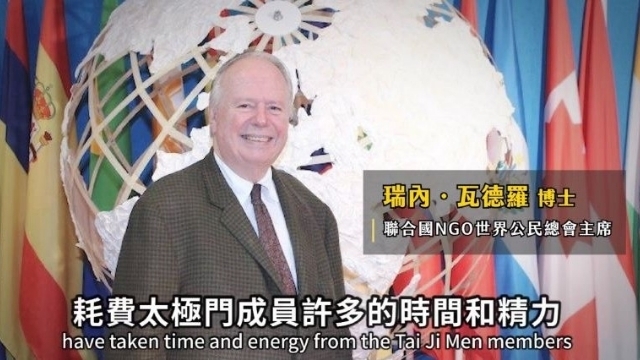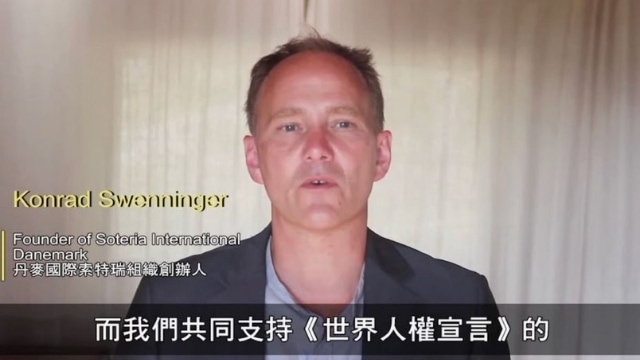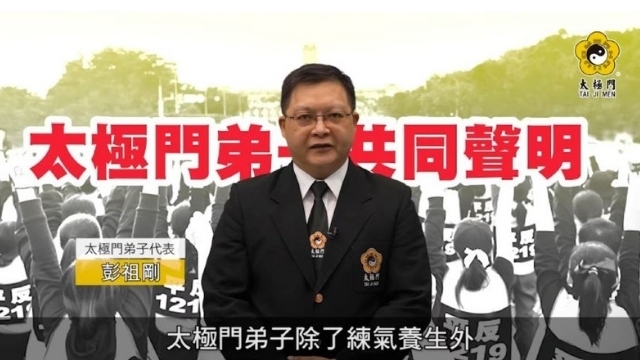07/19/2021MASSIMO INTROVIGNE
On July 13, a successful web conference remembered what happened, and highlighted the issues yet to be solved.
by Massimo Introvigne

On July 13, 2007, the criminal division of the Supreme Court of Taiwan pronounced the final acquittal of Tai Ji Men defendants, declaring them innocent of all charges. They had been arrested and incriminated in 1996, but had finally emerged victorious from their criminal trial. They even received compensation for the unjust detention.
This historical decision was celebrated in a web conference co-organized in Taipei by Tai Ji Men Qigong Academy with other 24 organizations, including the Research Center of the Department of Financial and Economic Law at National Chung Cheng University on July 13, 2021.
Speeches evidenced that, despite the unequivocal victory of Tai Ji Men in 2007 in the criminal trial, where the Supreme Court also clarified that no tax evasion occurred, the case was not concluded, as the National Taxation Bureau (NTB) ignored the court decision and continued to issue illegal tax bills. Eventually, the NTB was persuaded to reduce to zero the bills for all years except one, 1992, where it maintained a final decision had been rendered and legal remedies for appealing it had been exhausted. While courts of law, Taiwanese politicians, and international scholars and NGOs insisted that nothing happened in 1992 that was different from the other years, and justice demanded that the 1992 tax bill be withdrawn as well, but NTB’s persecution through taxation against Tai Ji Men’s shifu (Grand Master) and dizi (disciples) went on. In 2020, the National Enforcement Agency unlawfully and unsuccessfully auctioned and then seized land belonging to Tai Ji Men’s shifu, Dr. Hong Tao-Tze, and intended as a self-cultivation center for the movement’s dizi.
It is impossible to summarize the more than 40 speeches that punctuated the conference, giving voice to both Taiwanese and international scholars and human rights defenders, with the variety of contributions being in itself a testament to the widespread interest generated by the case.

Dr. René Wadlow, president of the United Nations ECOSOC-accredited NGO Association of World Citizens, noted that while the world faces unprecedented disasters, Tai Ji Men continues to promote conscience, peace, and love throughout the world. Tai Ji Men, he said, has also been compelled to fight against the injustices vested on it, which had on the other hand the positive effect of alerting the world on the issue of how taxes may be used to violate human rights.
Dr. Wadlow’s words were echoed by Dr. Hong himself, who also spoke in the opening session. He emphasized how Tai Ji Men dizi, reflecting on their own case, were able to identify tax injustices as a systemic problem, and fight for legal and tax reforms that would benefit all citizens of Taiwan.

Videos were projected where several foreign scholars expressed support, including Kenneth Jacobsen, a professor of law at Philadelphia’s Temple University who has studied in depth the Tai Ji Men case.
Two human right activists from Europe also spoke via videos. Konrad Swenninger, founder of Soteria International, noted that the 2007 victory (Tai Ji Men was acquitted in three instances of court trials) did not repay the countless hours Tai Ji Men dizi had spent fighting accusations that should never have been filed in the first place. He also said that victory will not be complete until the tax case will also be solved, and those who unjustly and illegally persecuted Tai Ji Men will be punished. Eric Roux, chairperson of the European Interreligious Forum for Religious Freedom, called Taiwan “one of the great democracies in the world,” which makes even less understandable how dishonest civil servants were allowed to bring the persecution of Tai Ji Men to its bitter end, years after the 2007 decision. Injustices in democratic countries, Roux said, are worse than those occurring in totalitarian regimes, because they may lower the standards of democracy in the entire world.

Su Yiu-Chen, Honorary President of the Chinese Association for Human Rights, compared unjust tax bills to viruses, and noted that in the Tai Ji Men case the NTB should have waited for the outcome of the criminal trial before moving against Dr. Hong and others for a tax evasion that never existed. He also explored the possibilities for a retrial of the tax case, noting that the current prevailing interpretation of the law restricts the citizens’ right to relief.
Chen Tze-Lung, president of Taiwan Society for the Study of Financial and Criminal Law applauded the 2007 verdict in the criminal case, but stated that it was only partial justice, since where there are victims there is a culprit, and the culprits in the Tai Ji Men case have not been punished. This, Chen noted, shows Taiwan’s limits in the pursuit of transitional justice, i.e., the form of justice that offers relief to citizens targeted by past injustices after a transition to genuine democracy has been completed.
Sean Chen, Managing Partner of Chengquan Law Firm, pointed out that, while the Tai Ji Men case had not yet concluded, there is evidence that enforcement agency bureaucrats were discussing how to divide the bonus. This incident raises doubts on the real motivations of the bureaucrats, and on the level of democratic progress in Taiwan.
Huang Shih-Cheng, President of Taiwan Heritage Foundation said through his representative that, “The National Taxation Bureau of Ministry of Finance has made a serious mistake of violating the law and making such a blatantly wrong decision. The presidential office, the five ministries, the executive system, the public opinion’s organs and the judiciary have allowed the Ministry of Finance to blatantly violate the law and dictate taxation.” Huang expressed hope that the government officials who violated the law could be brought to justice.

A well-known political commentator, Mr. Hu, Zhong-Xin, reflected on the story of Zacchaeus told in the 19th chapter of the Gospel of Luke in the Christian New Testament. Zacchaeus, a tax collector in the Roman Empire, was despised by the people for imposing excessive taxes and pocketing huge bonuses. After he met Jesus, he decided to donate half of his wealth to pay back four times those who had been wronged by his improper taxation practices. This is a lesson, Hu said, tax collectors in Taiwan should also learn.
Source: Bitter Winter
